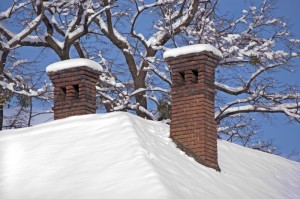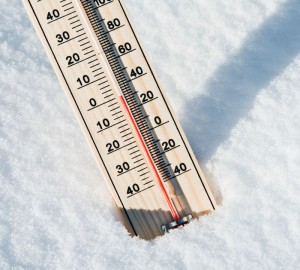Recent Bad Weather Could Damage Your Chimney
It’s been a winter of record-breaking weather in the Northeast United States. The Weather Channel is reporting some of the worst weather in years, and New York City has experienced some of the coldest temperatures in ten years. With the month of March expected to come in like a lion, many homeowners are concerned about the potential damage all this weather could be causing.
The Stack Effect
The cold weather could be affecting your heating bill, but beyond that harsh winter weather can also affect your chimney. During something called The Stack Effect, the cold air from the outside of your home battles with the warm air inside your home. When cold air is forced down your chimney and into your home (because of chimney leaks or a poorly capped chimney) this can force a back draft in your fireplace making lighting a fire almost impossible.
The Moisture Effect
Another major culprit of chimney damage is moisture. When there is an excessive amount of snow and/or ice like we’ve been experiencing in the Northeastern United States, this precipitation can make its way into your chimney. Not only can this make it very difficult to light a fire in your fireplace or stove difficult but it can also create a build-up of creosote. Creosote is a potentially harmful chemical build-up inside a chimney that occurs when a fire isn’t burning hot enough.
How You Can Protect Your Chimney From Winter Weather
Moisture and cold air are two of the main culprits causing chimney damage during the long and cold winter months. Luckily, there are certain precautions you can take to make sure you address chimney damage before it becomes a major problem:
After heavy snowfall, inspect the exterior of your chimney for any noticeable damage.
Inspect the interior of your home for water damage or peeling paint/wallpaper around your chimney or fireplace. This could signify a leak or other chimney damage.
Perhaps the best thing you can do to protect your chimney happens before winter sets in. Hire a professional chimney sweeping company like Chief Chimney Services in Suffolk County to inspect and sweep your chimney before the winter months. Your chimney sweeping company will make sure there is no major damage to your chimney and will keep it clean. Beyond that, your chimney sweeping company will:
Recommend a top-sealing damper
Re-line your chimney
Recommend and install a chimney cap
These easy add-ons can protect your chimney from harsh winter elements like cold air and moisture. After all, having an airtight chimney is the best way to protect against bad winter weather.
This winter has been one of the record books. Between the frigid temperature and immense amount of snow many homeowners can’t wait for spring to arrive. While you’re waiting out the storm, be sure to hire a reputable, professional chimney sweeping company to help you maintain your chimney and keep it in great working order. An airtight chimney will heat your home, as well as keep your loved ones safe while winter continues to rear its ugly head.


